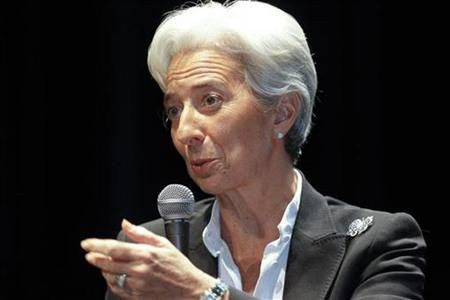Who Will Take Over The IMF If Strauss-Kahn Resigns?

As Dominique Strauss-Kahn’s continued role as boss of the International Monetary Fund (IMF) appears doomed following his arrest on charges of rape in New York over the weekend, speculation grows on who will ultimately succeed him.
Some observers think that the job should move to a non-European, perhaps someone from Asia, given the rising prominence of the non-European world on the global economy.
However, according to various media reports, some European finance ministers meeting in Brussels today have strongly suggested they will only accept a European as IMF chief.
Senior officials Germany and Belgium have stated that they would prefer a European to replace Strauss-Kahn should the need arose.
Angela Merkel, the German Chancellor, told reporters there are good reasons for a European to lead the IMF, given the severity and magnitude of the ongoing euro zone debt crisis.
Steffen Seibert, Merkel’s chief spokesman, said: “in the current situation, as dealing with the crisis in several euro countries puts such demands on the IMF, there’s a lot to be said for having a good European candidate.”
Didier Reynders, the Belgian Finance Minister, concurred with Merkel, repeating the “unspoken rule” that an American leads the World Bank while a European leads the IMF.
“It would be preferable if we continued to hold these posts in the future,” Reynders told reporters in Brussels.
(The current president of the World Bank is Robert Zoellick, a former U.S. deputy secretary of state).
All ten managing directors of the IMF, going back to the beginning in 1946, have been European and all have been men.
(John Lipsky, the IMF's deputy managing director and now acting chief in Strauss-Kahn’s absence, announced last week he will retire in August.)
The French finance minister, Christine Lagarde, are among the favorites to succeed Strauss-Kahn. Should she get the post, she would be the first woman and fifth French national.
Another likely successor is Axel Weber, the former President of Germany’s central bank. Weber was widely regarded as the next boss of the European Central Bank, before his surprise resignation from the Bundesbank earlier this year.
A dark horse for the job is the former British Prime Minister Gordon Brown, who has openly campaigned for it. However, his chances have been scuttled by the current UK PM David Cameron who has vowed not to put up Brown’s name as a potential candidate.
According to reports, other favorites from outside Europe include Angel Gurria, the former Mexican finance minister; and Kemal Dervis, a former minister of economic affairs in Turkey.
Dragana Ignjatovic, an analyst at IHS Global Insight in London, commented: “Customarily the [IMF] is led by a European, with the World Bank led by an American, but this arrangement has come under growing pressure from those who feel that emerging markets should have a stronger influence.”
Ignjatovic added that Strauss-Kahn's arrest will bring greater scrutiny to the succession and could make it more difficult for Europe to hold sway.
“Some have argued that the fact that Strauss-Kahn is a European has meant that the European nations embroiled in debt crises have received greater attention and assistance than they would have if they were in another part of the world,” she noted.
© Copyright IBTimes 2024. All rights reserved.




















